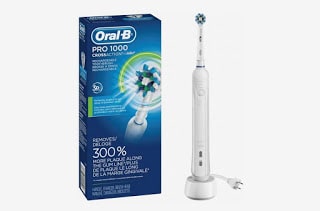The Best Electric Toothbrushes, According to Dentists
Posted on June 27, 2019

This article was originally posted on nymag.com here.
With ads for Quip lining subway cars and celebrities endorsing other electric models on Instagram (Khloé Kardashian’s Burst comes to mind), there seem to be more options for getting a powerful at-home teeth cleaning than ever before. For the most part, though, dentists we spoke with aren’t impressed by these newcomers and instead still recommend classics, like Philips Sonicare and Oral-B, due to the years of scientific research behind them. (That’s not to say that your shiny new Kardashian-endorsed toothbrush won’t clean your teeth — in fact, dentist Jonathan Levinepointed out that in one independent study, all types of powered toothbrushes outperformed manual ones in reducing plaque and gingivitis.)
Still, any electric — or other — toothbrush you buy should feature the American Dental Association (ADA) Seal of Acceptance. “The seal of acceptance says that a product does what it says and says what it does, and is safe and effective when used as directed,” according to dentist and ADA consumer adviser Matt Messina. But when it comes to picking among dentist-approved electric options, Sonya Krasilnikov, a dentist and co-founder of Dental House, admits, “Choosing between Sonicare and Oral-B is like picking between a Mercedes and BMW; it’s mostly personal preference. Their mechanism is different, but both achieve great results.” There are subtle differences, though, which Krasilnikov and five other dentists break down in their below picks for the best electric models on the market right now.
Best rotating, oscillating electric toothbrushes
Oral-B White Pro 1000 Power Rechargeable Electric Toothbrush
$40 (was $50, now 20% off)
Identifiable by their small, round brush heads, Oral-B toothbrushes both rotate and vibrate (or oscillate). These brushes can rotate 44,000 times per minute — which Levine says causes “a lot of disruption of plaque” — and one study shows that rotating and oscillating toothbrushes have a small edge over comparable ones that simply oscillate. Orthodontist Janet Stoess-Allen, who is also a fan of this Oral-B brush, says that because teeth are curved in shape, “rotating heads are more effective in getting to all sides of them.”
This basic rechargeable model offers the three main features that dentists recommend: soft bristles, a pressure sensor, and a timer. “Hard-bristled toothbrushes are wonderful if you’re going to clean the grout from your bathroom tile, but they’re not for use in the mouth,” says Messina, who explains that harder bristles can damage gums and enamel. Brushing too hard can do the same, which is why dentist Inna Chern likes brushes with pressure sensors that beep or stop moving when you’re being too aggressive to “eliminate the possibility of overzealous brushing.” Finally, the two-minute timer, which vibrates every 30 seconds when it’s time to move to the next quadrant of your mouth, ensures you brush for enough time.
Oral-B 7000 SmartSeries Rechargeable Power Electric Toothbrush
$111 (was $130, now 15% off)

Because of their small brush heads, Chern says Oral-B brushes are a good pick “if your mouth is on the smaller side, or you have gagging issues.” A smaller brush head makes it easier for some people to reach their molars, too, she explains. If you have braces or other orthodontics, you also might prefer Oral-B, according to Stoess-Allen, who recommends the brand to her patients because it makes a brush head designed to navigate wires and bands in the mouth.
Best oscillating electric toothbrushes
Philips Sonicare ProtectiveClean 4100 Plaque Control
$50 (was $70, now 29% off)

Philips Sonicare Diamond Clean Classic Electric Toothbrush

Pro-Sys VarioSonic Electric Toothbrush

Best drugstore electric toothbrush
Arm & Hammer Spinbrush PRO+ Deep Clean Powered Toothbrush
$8 (was $11, now 27% off)

Best start-up electric toothbrush


